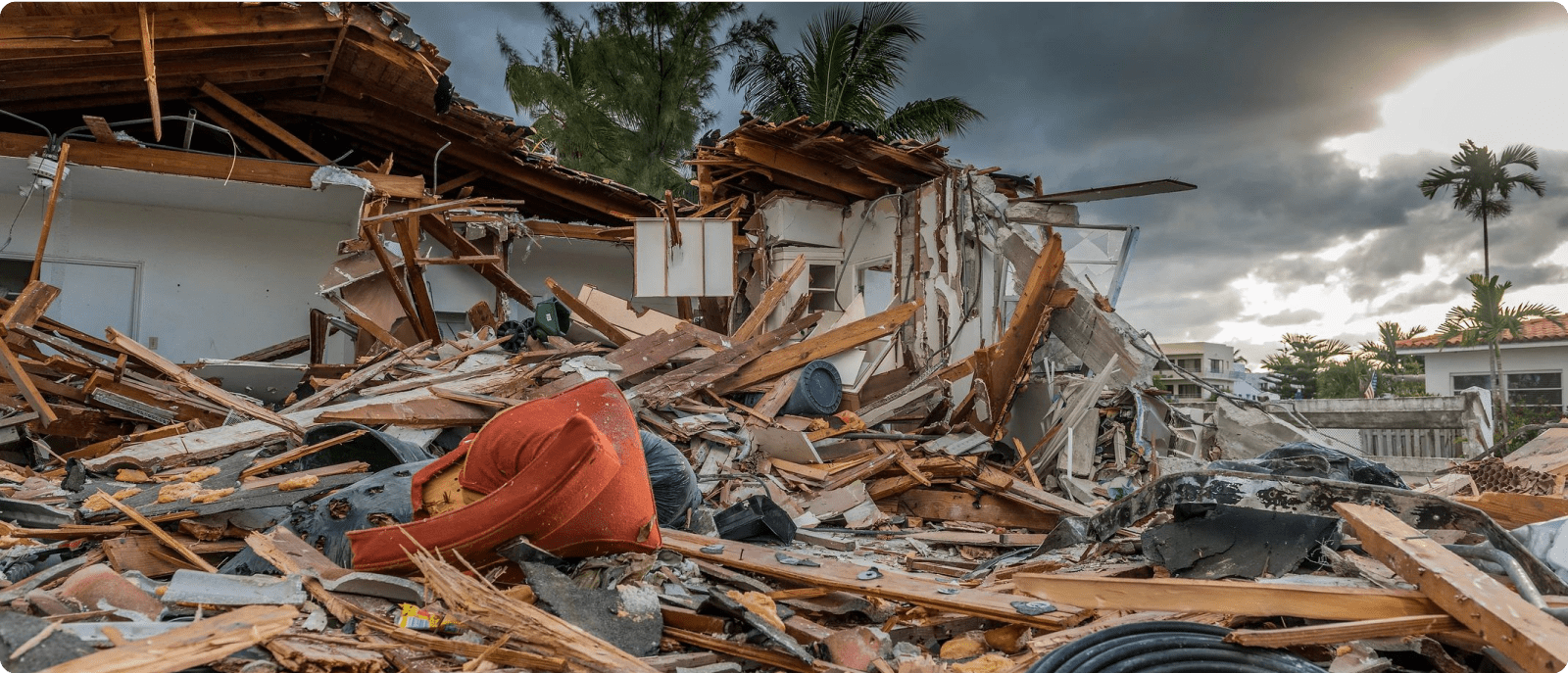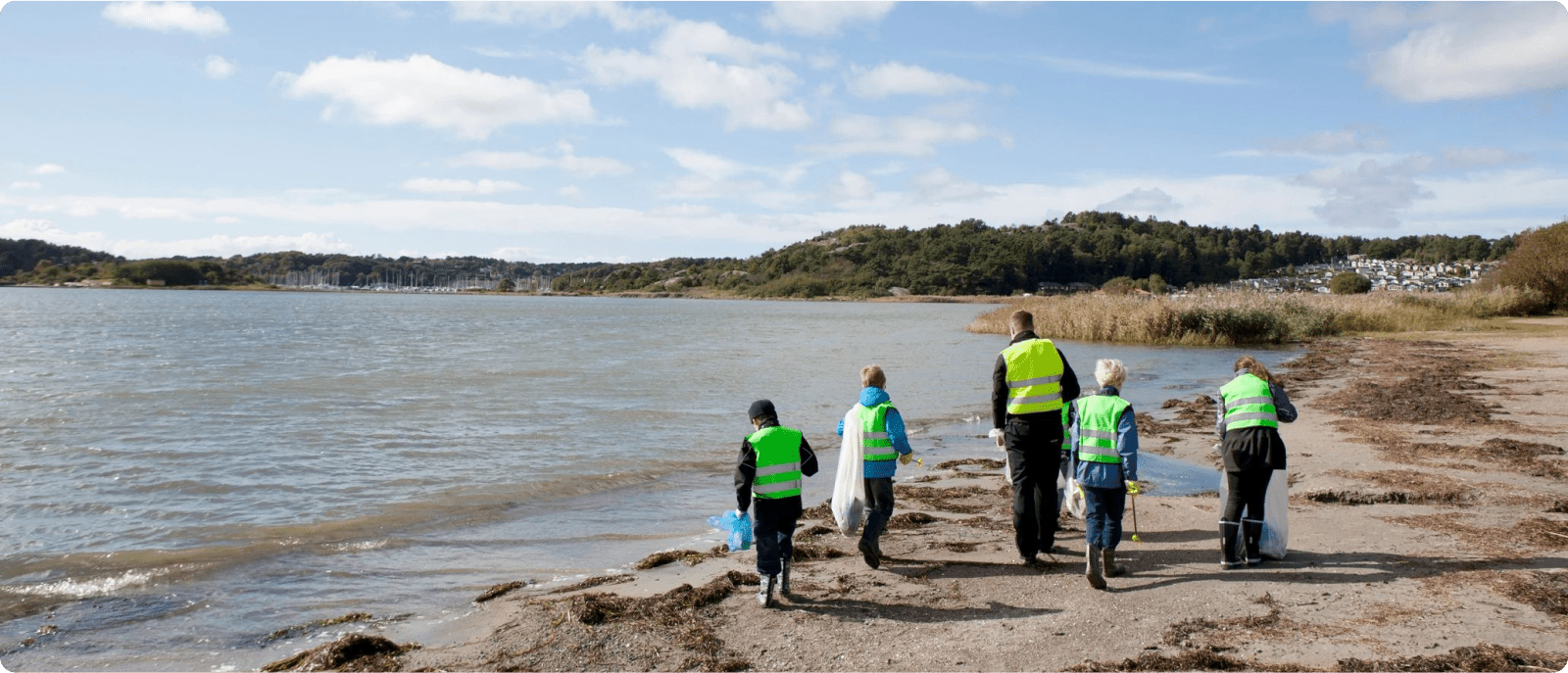Climate change isn’t coming – it’s here. We experience it every day - with each record-breaking storm, devastating wildfire, extreme heat event and unprecedented flood. It’s no longer a question of ‘if’ climate risk is real; it’s a present-day crisis, intrinsically linked to the resilience and continuity of both society and business.
The real question we must all be asking today is: Who “owns” climate risk? Is it the responsibility of risk management teams, finance departments, facility managers or sustainability officers? Or, more significantly, is it a business-wide imperative that impacts every aspect of operations, strategy, and long-term survival?
-
READ MORE
Today, climate change and extreme weather events aren’t isolated to the environment; it’s about how organizations and communities withstand disruption and adapt to a rapidly changing world. The very survival of businesses is intertwined with their ability to proactively identify and understand their exposure to climate change and extreme weather to withstand its impacts.
So, whether you’re a business leader, an investor, or a community stakeholder, the capacity to adapt to climate risk will determine your future viability - not just in terms of sustainability, but in the continued operational, financial, and strategic health of your organization.
My experience has shown that when faced with these critical moments, we must embrace discomfort, uncertainty, and be willing to make decisions based on what we know. The climate crisis is no different. Our ability to adapt, stay resilient, grow from past experiences and make bold, proactive decisions for the future will determine our success.
Are we ready to respond, or are we still stuck debating who should take the lead?
The Climate Imperative: A Business, Not Just an Environmental, Challenge

The impacts of climate change are prevalent today, affecting every sector, every region, and every industry. According to Munich Re, the world’s largest reinsurer, global economic losses from climate-related disasters exceeded $250 billion in 2023 alone1. And by 2050, the Institute for Economics & Peace predicts that 1.2 billion people could be displaced due to climate-related disasters2.
When looking at how organizations and governments are adapting to climate risks, one clear takeaway emerges: preparedness on an individual asset level is no longer sufficient. It’s about building resilience across systems, industries, and communities.
-
READ MORE
This is particularly relevant in sectors like water management, where the traditional, siloed approach to handling stormwater, wastewater, and drinking water must evolve to make better use of this scarce resource, especially when faced with escalating climate impacts. By integrating stormwater, wastewater, and potable water management into a single strategy, cities can better prepare for and adapt to extreme weather events that will continue to increase in frequency and intensity. For example, our work on the Santa Monica Sustainable Water Infrastructure Project has demonstrated the tangible benefits of this integrated water management approach , helping them bolster resilience and improve long-term sustainability.
Climate risk therefore goes beyond sustainability, it’s about balancing economic and social stability, with long-term viability.
Key Considerations: Considering Climate Risk in Your Business Strategy
For businesses to successfully navigate climate risk, it must be integrated into core strategy. Here are three key considerations:
1. Governance: Who owns climate risk in your business?

In most organizations, climate risk is treated as an external consideration, sitting outside of the core business strategy. That approach is dangerous, given the staggering costs of extreme weather events that continue to rise. In 2021 alone, the U.S. faced over $145 billion in damages due to extreme weather3, highlighting the urgency of incorporating climate risk into core business strategies.
Historically, though the scale of climate related environmental risks has been a cause for concern for lawmakers and leaders alike, action has been slow due to lack of clarity in assigned responsibility. It’s a problem that still persists today.
-
READ MORE
Without clear ownership of climate risk across business functions - be it finance, operations, or risk management - we are left fragmented. Organizations that thrive in the coming years will be the ones that have integrated climate risk into their governance and decision-making structures, empowering every department to own their piece of the puzzle.
For example, Arcadis partnered with a European hotel investor overseeing a portfolio of more than 70 hotels, to conduct a comprehensive Climate Change Risk Analysis. This analysis followed guidelines from the Taskforce on Climate-related Financial Disclosures (TCFD) and the EU Taxonomy, ensuring that the company considered both physical climate risks, such as temperature changes and flooding, alongside long-term financial impacts. 27 climate risks, including risks related to temperature changes, heat stress, sea level rise, flooding, and water stress were assessed, assigning risk ratings for each potential impact. By integrating these risks with considerations around their magnitude into their governance structures, the client was able to develop a strategic risk management process and create a clear decarbonization roadmap.
In today’s regulatory environment, it's essential for businesses to take ownership of climate risk at every level. Our work with the hotel investor helped them not only to comply with emerging regulations but to future-proof their entire operation. This proactive approach will help them mitigate financial risks while seizing new opportunities for growth and sustainability.
Another such example is Arcadis’ work supporting a UK government department responsible for a portfolio of over 1,200 buildings in developing a Climate Change Risk Assessment and Adaptation Plan. This initiative created a structured approach to climate governance, ensuring all relevant business areas contributed to the risk management process and preparedness; and included best and worst-case scenarios visualized in our innovative SmartAtlas digital GIS platform. By integrating climate risk into their planning, the client significantly improved their resilience, safeguarding their operations against immediate and future climate risks.
2. Supply Chain Resilience: How are you safeguarding your operations?

Climate risk goes beyond a company’s operations and physical damage to a company’s facilities, extending throughout the supply chain. Disruptions caused by climate-related events such as floods, droughts, or storms can halt production, delay logistics and lead to material shortages, all of which can significantly impact a company’s bottom line. According to Economist Impact’s ‘Trade in Transition’ report, more than 99% of surveyed executive stated their supply chain is impacted by climate change4, making resilience a top priority.
To build resilience, businesses must map out climate vulnerabilities across their supply chains, identifying regions prone to extreme weather, assessing supplier preparedness, and developing contingency plans. By engaging with suppliers and leveraging predictive tools, companies can anticipate risks and respond proactively, ensuring business continuity.
-
READ MORE
Arcadis has supported global clients, particularly in logistics and manufacturing, by integrating climate risk modeling into their supply chain strategies. This proactive approach helps businesses identify weak points and implement solutions that reduce downtime during extreme weather events, safeguarding operations and ensuring long-term profitability.
Beyond immediate risks, supply chains must embrace sustainability to meet growing regulatory and consumer expectations. Integrating more sustainable choices around logistics and sourcing practices not only reduces carbon emissions but also strengthens resilience against future climate risks.
3. Financial Impact: Are you prepared for the long-term costs?

Climate-related disruptions have both short and long-term financial consequences. The rising cost of insurance, changes in asset values, and shifting regulatory requirements can drastically alter a company’s financial health, performance and viability. Climate risks must be factored into financial planning to ensure preparedness, and that necessary insurances and assurances are built into this to prepare for any potential economic fallout.
A key consideration is the evolving insurance landscape. Increasing extreme weather events have led to higher premiums and a decrease in the availability of coverage in high-risk areas.
With the rising cost of climate-related insurance, particularly for flood and property coverage, businesses are finding it harder to secure adequate protection and the right safety net. For example, the National Flood Insurance Program in the U.S. has been overwhelmed, prompting urgent reforms and a shift toward more predictive, data-driven models. This is why we are focusing on helping our clients not only assess these risks but also design resilience strategies that reduce their exposure and ensure they can continue to operate effectively in the face of these disruptions. From updating asset portfolios to comply with new regulations to co-creating innovative climate risk tools like Climate Risk Nexus, businesses that take proactive steps now will be much better positioned for future success.
Working with the city of Norfolk, Virginia, our team was able to help them redefine their coastal resilience by developing a plan to secure $120.5 million in federal funding. This enabled the city to bolster shoreline defenses and implement flood protection measures, safeguarding infrastructure and reducing long-term financial risks associated with climate impacts. This approach helped protect both people and assets, preventing future economic losses.
Solutions and Key Questions You Should Consider
The resilience of our systems depends on the resilience of our people - those on the front lines of change, implementing solutions, and facing the everyday realities of this crisis. From skilled workers designing climate-resilient infrastructure to community members adapting to new realities, people must be at the heart of every solution.
The social impact of climate risk is profound, disproportionately affecting vulnerable communities. Those without the resources to recover from floods or wildfires are often left behind. Solutions need to account for this disparity by fostering inclusivity, workforce readiness, and social resilience.
In Barranquilla, Colombia, Arcadis worked with UN-Habitat to design nature-based solutions for flood risk management, specifically targeting vulnerable communities impacted by severe flooding. The project was not just about infrastructure - it aimed to strengthen community resilience, foster social equity, and improve mobility for those most affected by climate risks.
So, what should your organization consider when looking at climate resilience? Here are five crucial questions:
The Future Demands Bold Leadership - Are You Ready to Own It?

Climate risk is not someone else’s problem - it belongs to all of us. But the concern today is not only who owns it, rather, whether it’s being clearly evaluated and consistently addressed. Businesses must incorporate this in their strategy - evaluating how climate risk affects everything from production rates to the equipment we have on-site, as these disruptions can directly impact both effectiveness and productivity.
The Corporate Sustainability Reporting Directive (CSRD), for example, now enforces double materiality, meaning businesses are not only responsible for reporting their environmental impact but also how climate risks affect their financial performance. However, reporting on these risks alone isn’t the same as truly owning them.
At Arcadis, we understand that climate impacts go beyond owned property and can directly affect productivity, equipment, and operations, and more holistically, safeguarding the resilience of your entire business model.
Reflecting on recent client conversations and the many Arcadis projects that are addressing this very challenge, one truth stands out: the time for hesitation is over. Whether public or private, the businesses and organizations that will thrive in this new era are the ones that embrace the reality of climate risk as a core strategic concern. From leveraging AI to predict future risks, to making the financial case for sustainability, the future demands bold leadership and an empowered workforce.
I leave you with this question: What are you doing to own climate risk and lead your business into the future?
Sources:
1. Munich Re
2. Institute for Economics & Peace
3. Climate.gov
4. Trade in Transition by Economist Impact












